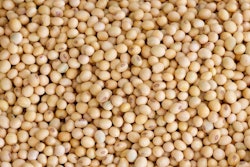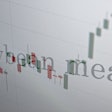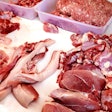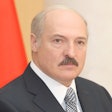
Jay Debertin, CHS president and CEO, delivered the opening keynote speech at the Federal Reserve Bank of Kansas City’s 2023 Agricultural Symposium on May 23 and noted recent geopolitical events have profoundly impacted today’s agriculture landscape.
Starting with the tariff war between the U.S. and China and the Russian war in Ukraine, these events have shifted trade alliances across the globe and dramatically changed trade flows, as the global agriculture market finds itself caught in the middle.
“These are not the kind of trade issues we’ve experienced in previous decades,” Debertin said in his address.
“Trade flows change and fluctuate – they always have – but these recent shifts are historical in speed, scale and market impact," said Debertin. "Today, both Ukraine and Russia are top exporters for global grain markets, but as the war drags on, Ukraine's harvest will likely to be down roughly 20% in 2023, and exports out of the country are estimated to be down a third of a normal year’s production. Lack of access to finance, fertilizers, fuel and labor and having to navigate mines placed in the fields – the impact on the Ukrainian farmer is tough, really tough.”
Debertin added that fewer acres will be planted this year in Ukraine and, as a result, Ukraine’s losses will need to be made up elsewhere.
“Large trade flows will have to change and there are not many places that you can get large volumes of grain to replace the volumes lost, so it really is down to South American countries and the U.S, with parts of Europe and Australia contributing.”
Debertin told the audience of 200 attendees that despite these headwinds, agriculture finds itself in a really good place.
“The combination of higher input costs, high commodity prices and volatility have placed a premium on the grower’s ability to manage margins,” he said. “Tight balance sheets for grains and oilseeds will continue, but despite these headwinds, 2022 marked the best year on record for inflation-adjusted net farm income since 1973, as strong global demand and high prices for commodities drove profitability for many growers. The USDA is projecting farm income to decline in 2023, but nonetheless, U.S agriculture has been in and remains in a very good window.”

















